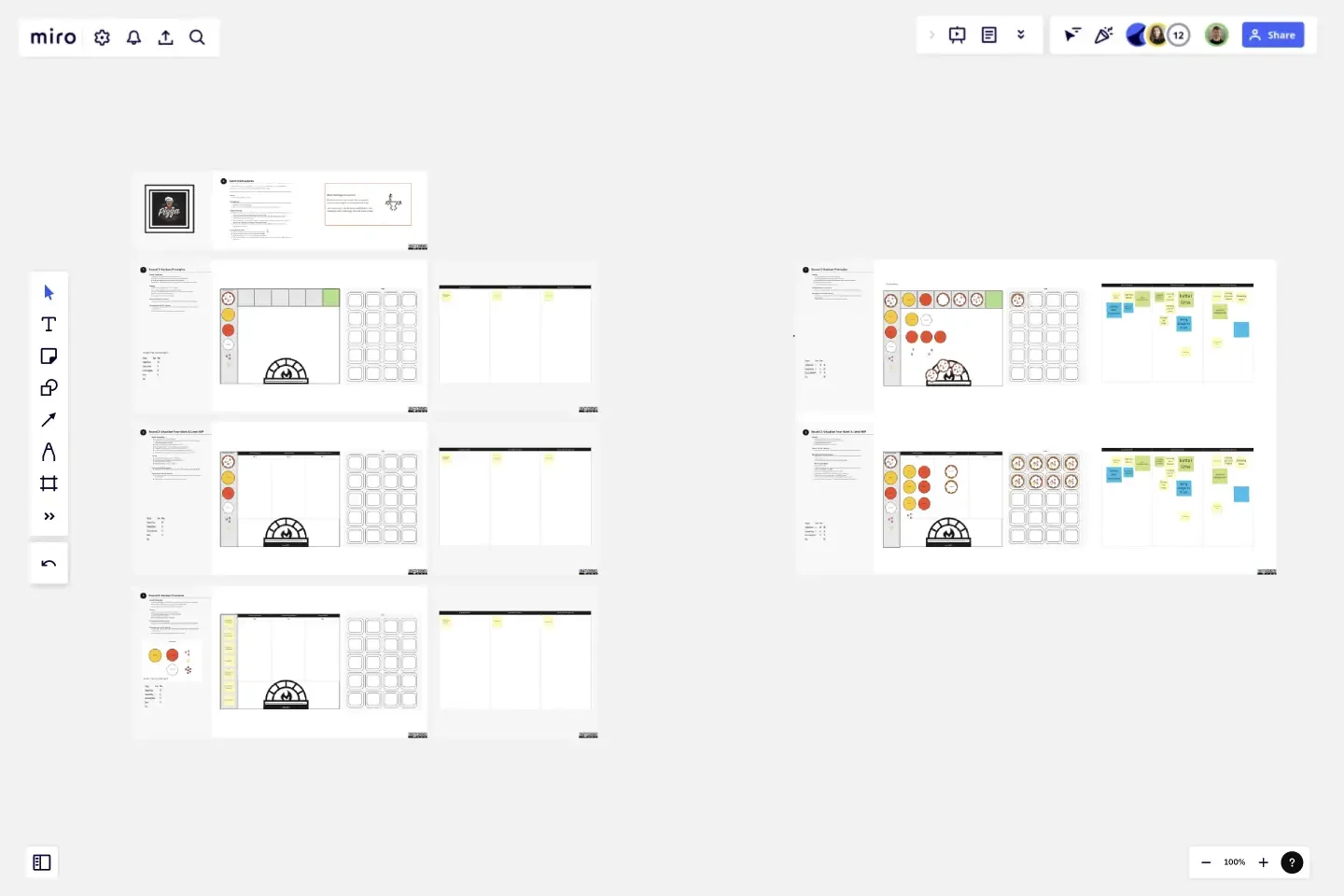Kanban Pizza Game
If you want to understand the kanban principles and practices in fun and engaging way then the kanban pizza game is for you!
This lean-agile coaching tool is the perfect virtual template to teach individuals and teams the basics of a kanban system. Teams are guided through 3 iterations, each one adopts more of the practices until the end when teams bring it all together.
The mechanics of the game are simple, you're a team of pizza chefs and it's your job to make the most pizzas you can as a team without creating waste. Apply WIP limits and roles to manage your flow and create pizza orders for your customers.
Play as a single team or compete with multiple teams and copy as many boards as you need to facilitate this fun learning session.
This template was created by Flowana.
Get started with this template right now.
SAFe PI Planning
Works best for:
Agile
SAFe PI Planning is a collaborative event for Agile Release Trains to plan and align on program increments. It provides a structured framework for setting objectives, identifying dependencies, and sequencing work. This template facilitates PI Planning sessions, enabling teams to visualize their commitments and coordinate cross-team dependencies effectively. By promoting transparency and alignment, SAFe PI Planning empowers Agile organizations to deliver value at scale with predictability and quality.
Kanban Framework Template
Works best for:
Kanban Boards, Agile Methodology, Agile Workflows
Optimized processes, improved flow, and increased value for your customers — that’s what the Kanban method can help you achieve. Based on a set of lean principles and practices (and created in the 1950s by a Toyota Automotive employee), Kanban helps your team reduce waste, address numerous other issues, and collaborate on fixing them together. You can use our simple Kanban template to both closely monitor the progress of all work and to display work to yourself and cross-functional partners, so that the behind-the-scenes nature of software is revealed.
Editorial Calendar Template
Works best for:
Marketing, Strategic Planning, Project Planning
If your company is like most, content is a big thing. You create more of it (and a lot faster) than you create almost anything else. It includes blogs, newsletters, social media posts, ads, and more—and it requires ideating, writing, editing, and publishing. That’s why every content team needs an editorial calendar. The template will let you easily create a calendar that empowers your team to plan strategically, keep things organized (by content type, writer, channel, and delivery date), and finalize/post all content on schedule.
Hiring Process Template
Works best for:
Operations, Org Charts, Kanban Boards
Having a hiring process in place simplifies that process each step of the way, from recruiting for the position to making finalizing offers. This simple, effective template will give you a straightforward, high-level view of where employees are as they move from applicant to new hire.
Canvas Playground Template
Works best for:
Templates
The canvas playground template is the ultimate way to explore all the features that make up Miro's Intelligent Canvas. This dynamic and interactive space is designed to help you get work done faster while engaging your team. From AI creation and Sidekicks to intelligent widgets, this template allows you to try it all and discover how these capabilities can streamline your workflow and enhance collaboration.
Event Storming
Works best for:
Agile
Event Storming is a collaborative workshop technique for exploring complex business problems and modeling solutions. It fosters communication, uncovers dependencies, and aligns stakeholders by visualizing the flow of events in a system. This template empowers teams to map out processes, identify bottlenecks, and iterate towards more efficient solutions, driving continuous improvement and innovation.
